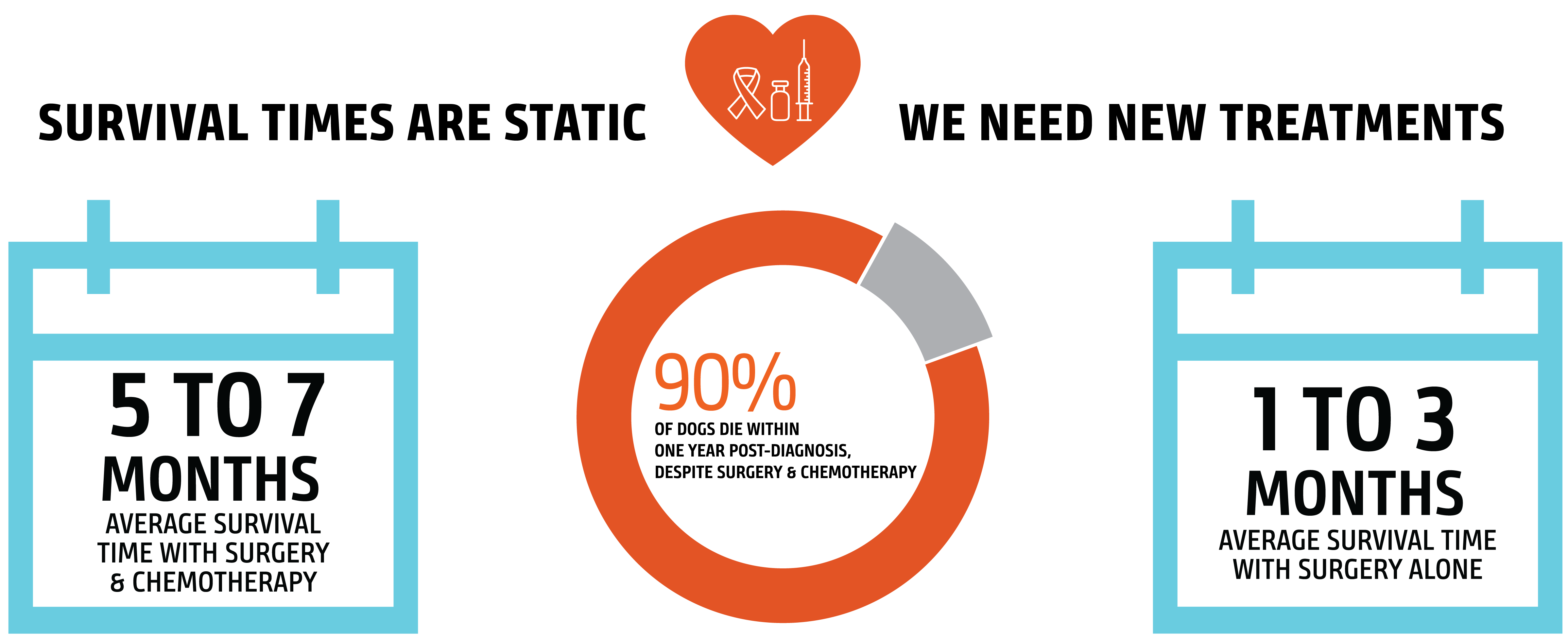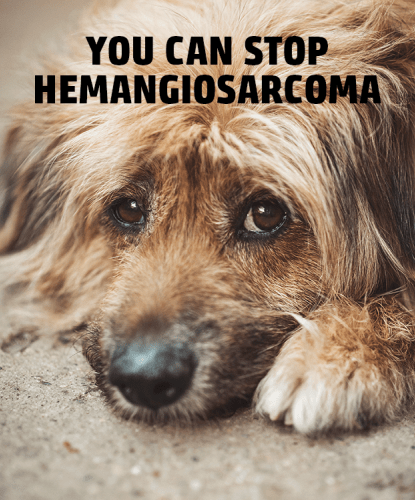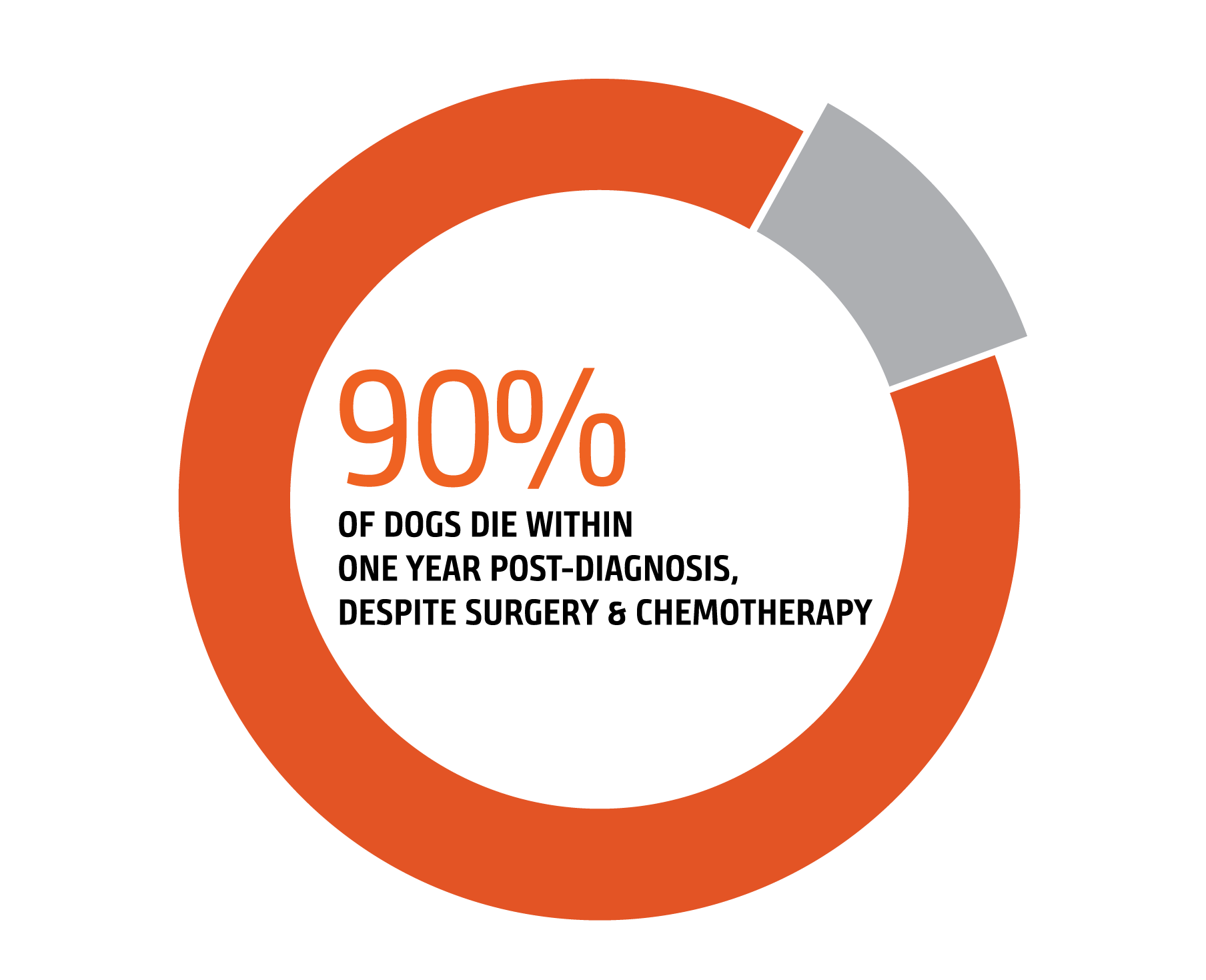WHAT IS HEMANGIOSARCOMA?
Hemangiosarcoma is one of the deadliest forms of canine cancer. Hemangiosarcomas are tumors that are thought to arise from the bone marrow and seed areas with a rich blood supply. Because tumors tend to grow in these blood-rich areas such as the spleen and heart, they can suddenly rupture, causing massive blood loss, and forcing owners and veterinarians to make difficult decisions within minutes of diagnosis.
HEMANGIOSARCOMA OVERVIEW
RISK FACTORS AND SURVIVAL STATISTICS
NEW IDEAS ON HEMANGIOSARCOMA IN DOGS : PODCAST
UPDATE ON THE GOLDEN RETRIEVER LIFETIME STUDY
OUR HEMANGIOSARCOMA RESEARCH INITIATIVE
TED TALK ON HEMANGIOSARCOMA
MORE RESOURCES
WHO DOES HEMANGIOSARCOMA MOST COMMONLY AFFECT?
Middle-aged to older dogs; German shepherds, golden retrievers, Portuguese water dogs and Labrador retrievers appear to be at higher risk although any dog can develop hemangiosarcoma. Even when a tumor is quickly detected and removed, the outlook for dogs with hemangiosarcoma is grim.
WHAT ARE THE CLINICAL SIGNS?
Unfortunately, no clinical signs (symptoms) are classic for hemangiosarcoma other than sudden, profound, internal bleeding. Other clinical signs reported by owners include: intermittent lethargy or fatigue, anorexia, panting, sudden collapse, sudden death.WHAT DIAGNOSTICS ARE PERFORMED?
According to NC State University, hemangiosarcoma is most often diagnosed via biopsy, regardless of location within the body. Other tools that are useful in providing a definitive diagnosis and also assessing extent of disease include X-Rays, CT scans and surgery. Often, an echocardiogram is recommended to determine if there is a mass in the heart.
OUR PROGRESS SO FARMorris Animal Foundation has invested more than $3 million in 20+ years of research to improve the quality and duration of life for dogs diagnosed with hemangiosarcoma. Our funded research has focused on: |
DISEASE BASICSUnderstanding the basic biology of hemangiosarcoma may open the door to new diagnostics, treatments and prevention. |
CHEMOTHERAPY RESISTANCEUnderstanding why hemangiosarcoma becomes drug resistant could improve treatment success as well as identify new chemotherapeutic agents. |
GENETIC LINKSStudying breeds commonly affected by hemangiosarcoma could lead to new diagnostic testing and clues to the role genetics plays in the development of this disease. |
 |
| At Morris Animal Foundation, we want to change the odds for dogs diagnosed with hemangiosarcoma. But we need your help! Our new Hemangiosarcoma Initiative dedicates critically needed funding, people and resources toward new and innovative approaches to diagnose, treat, and possibly cure, this devastating cancer. |
 |
| You can make a difference with your support of this life-changing project. | ||
|
Resources For Grieving Pet Parents
Have you lost a loved one to cancer? Losing a beloved pet is difficult, but knowing there are resources available, and realizing you’re not alone when it comes to pet loss and grief, can make the process just a little easier. Find some resources below to help guide you on this journey.









